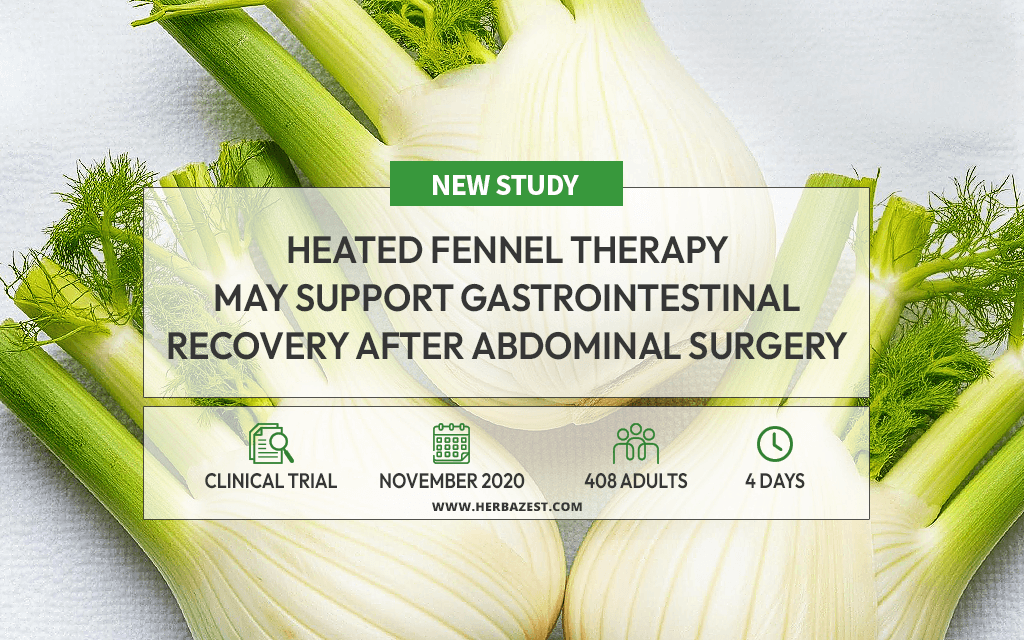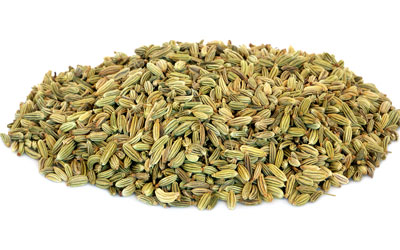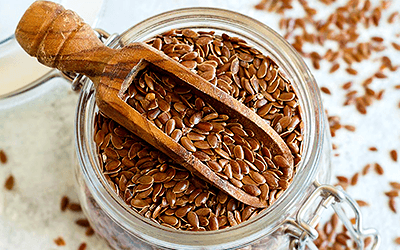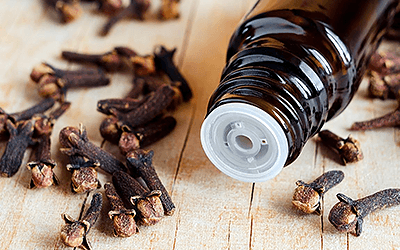Restoring gastrointestinal function is one of the most important aspects of abdominal surgery surgery. It helps prevent complications and decrease the duration of hospital stays.
Studies have shown that fennel may promote gastrointestinal peristalsis, which, in turn, may help in the recovery process.1,2 Topical fennel applications could be particularly beneficial for postoperative patients who cannot take fennel orally immediately after surgery.
The aim of this study was to evaluate the effectiveness of heated fennel therapy in accelerating postoperative recovery.
The Study
This 2020 randomized clinical study was conducted at the Chinese Zhongnan Hospital of Wuhan University. Researchers recruited 408 patients, undergoing a variety of surgeries for abdominal tumors.
Participants were initially divided into two groups, depending on whether they were scheduled for an alimentary tract reconstruction. Both groups were then further divided into two subgroups: the experimental and the control.
The experimental subgroups received fast-track care and heated fennel therapy, which consisted of heating 500 g of fennel in a microwave, wrapping it in a towel, and applying it to the abdomen for at least 15 minutes, six to eight times daily. The control subgroups, on the other hand, received fast-track care and heated rice husk therapy.
The primary outcome was the recovery of gastrointestinal function, which was measured as the time it took a patient to pass the first flatus (gas), have the first bowel movement, and begin eating. Secondary outcomes included abdominal pain and distension, the length of hospital stay, and other relevant markers.
The Results
Patients in both experimental subgroups showed significant decreases in the time to first flatus and bowel movement, fasting time, and hospitalization stay, all of which are indicators of gastrointestinal motility.
Additionally, abdominal distension was less severe in groups undergoing heated fennel therapy as compared to those undergoing heated rice husk therapy. No improvements were reported in terms of abdominal pain.
What Does This Mean?
The results of this trial have shown the benefits of using fennel for gastrointestinal recovery after abdominal surgery. While researchers believe that these benefits are likely due to fennel's effects on the electrophysiology of gastrointestinal smooth muscles, the exact mechanism is yet to be determined.
Their findings can greatly benefit patients undergoing abdominal surgery as accelerating gastrointestinal function recovery helps decrease the risk of complications, improve postoperative nutritional status, and reduce the length of hospitalization.
Other herbs that are beneficial for gastrointestinal health include ginger, turmeric, and peppermint.
Sources
- Surgery, Heated fennel therapy promotes the recovery of gastrointestinal function in patients after complex abdominal surgery: A single-center prospective randomized controlled trial in China, 2020
Footnotes:
- Journal of Gastrointestinal and Liver Diseases. (2016). Curcumin and Fennel Essential Oil Improve Symptoms and Quality of Life in Patients with Irritable Bowel Syndrome. Retrieved March 9, 2021 from https://www.jgld.ro/jgld/index.php/jgld/article/view/1100/347
- PLOS One. (2018). The combination of Cassia obtusifolia L. and Foeniculum vulgare M. exhibits a laxative effect on loperamide-induced constipation of rats. Retrieved March 9, 2021 from https://journals.plos.org/plosone/article?id=10.1371/journal.pone.0195624





